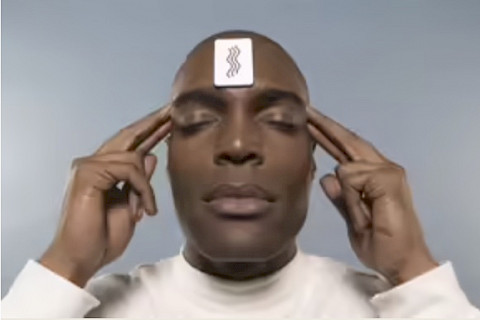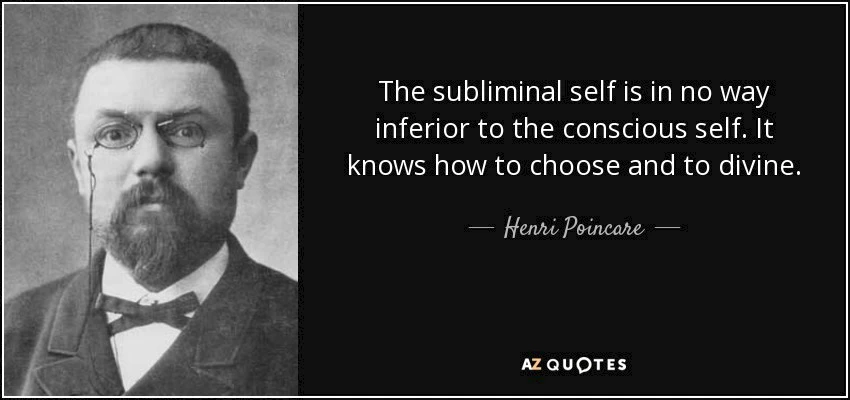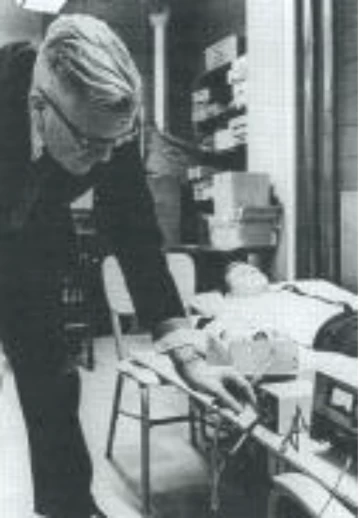

Unconscious ESP
It has long been thought that ESP occurs inside the depths of the subliminal mind meaning a person is often unaware it is even happening. Studies indicate that our bodies produce physical and emotional responses when using ESP that can be measured by an instrument called a plethysmograph. What role could unconscious ESP play for paranormal investigators?
What is unconscious ESP?
ESP stands for Extra Sensory Perception. It is what many refer to as 'the sixth sense'. It is used to essentially explain any sort of psychic ability. From a person seemingly receiving messages from the other side through to things like telepathy and clairvoyance. While other terms such a 'supersensuous perception and extra sensory cognition' were used to describe this phenomenon, it was Joseph Banks Rhine who didn't feel these terms were specific enough and went on to make the term Extra Sensory Perception what it is today.
"this mode of perception is above and outside the sensory sphere, and is likely to be more of a total response, un-differentiable and un-analyzable-a reception on the complex level of knowing. Hence I call it 'Extra-Sensory Perception'."
E.S.P Extra Sensory Perception by Jospeh Banks Rhine (1934)
The concept of ESP and telepathy however is often attributed to Frederick Myers and his book Human Personality and its survival of bodily death which looks at telepathy and the unconscious mind. He often refers to the 'subliminal self' where he associates psychic phenomena to the unconscious mind and something that happens below the limits of consciousness. Put simply, it tends to happen automatically without a person thinking about it, much like breathing.
"I feel bound to speak of a subliminal or ultra-marginal consciousness,—a consciousness which we shall see, for instance, uttering or writing sentences quite as complex and coherent as the supraliminal consciousness could make them. Perceiving further that this conscious life beneath the threshhold or beyond the margin seems to be no discontinuous or intermittent thing; that not only are these isolated subliminal processes comparable with isolated supraliminal processes (as when a problem is solved by some unknown procedure in a dream), but that there also is a continuous subliminal chain of memory (or more chains than one) involving just that kind of individual and persistent revival of old impressions, and response to new ones, which we commonly call a Self,—I find it permissible and convenient to speak of subliminal Selves, or more briefly of a subliminal Self. I do not indeed by using this term assume that there are two correlative and parallel selves existing always within each of us. Rather I mean by the subliminal Self that part of the Self which is commonly subliminal; and I conceive that there may be,—not only co-operations between these quasi-independent trains of thought,—but also upheavals and alternations of personality of many kinds, so that what was once below the surface may for a time, or permanently, rise above it. And I conceive also that no Self of which we can here have cognisance is in reality more than a fragment of a larger Self,—revealed in a fashion at once shifting and limited through an organism not so framed as to afford it full manifestation."
Human Personality and its survival of bodily death F W H Myers (1903)
It seems that Myers was onto something as further research has shown that our bodies register ESP signals which are shown by the body's physiological processes. In a series of studies conducted by E. Douglas Dean, subjects were hooked up to a plethysmograph, a machine that measures increases or decreases in blood and lymph volume, which resulted from emotional responses. What was even more interesting is that subjects registered results when they were 'unaware' that a message was being telepathically transmitted to them indicating that there could be something to unconscious ESP.

Plethysmograph Studies
The term plethysmography is based on the greek root 'plethysntos' which means enlargement. Led by E. Douglas Dean, subjects were hooked up to a plethysmograph to measure increases or decreases in blood and lymph volume, resulting from emotional responses.

E Douglas Dean and his plethysmograph studies
Image Source: Williamjames.com
To measure the effects of ESP, a sender was positioned in another room to the test subject who was hooked up to the plethysmograph. The sender then concentrated on different names, some of which were known to be emotionally significant to the subjects and telepathically 'sent' this information to the subject. The results indicated changes in the blood volume meaning that the subject was unaware they were receiving a telepathic message, yet their body registered a type of change. in 1966, Dean published his findings in a report titled Plethysmograph recordings as ESP responses in the International ]ournal of Neuropsychiatry, II pages 439-436. It is often referenced by many researchers of parapsychology.
What does this mean for ESP?
The first thing that comes to mind when I look into this topic is the notion that anyone is capable of psychic abilities. This theory would lead into that. There is often questions around why is it some people have more psychic abilities than others or why some people can easily access these abilities while others have to work at it. Some do not discover these abilities until much later in life. The unconscious ESP or the subliminal self theory, means that we would then all have the capability within our unconscious mind. It could just be waiting to be unlocked. When we look at all of the things that make up a person's unconscious mind it is full of things we have learned throughout our life. Reflexes, memories, thought processes, interests and motivations to name a few. Even our belief systems influence this. If you are raised with a more spiritual mindset, you may find it much easier to access this part of the unconscious mind as opposed to someone that was perhaps raised being told 'its not real'. Once a person starts to open up their mind to the paranormal, maybe this part of the mind begins to 'unlock'. I have often heard from people that once they start investigating the paranormal that they start to experience it more and more and many seem to develop their ESP. There are two possibilities here. One is that a person is finding what they are looking for simply because they want it and their perception is giving them what they are looking for. Every noise can suddenly become something more than it really is. The other possibility is that now this part of the unconscious mind is potentially unlocked, this ability that they have always had is now moving from being solely locked in the unconscious part of the mind and can even be used on a conscious level. Of course, it could be a bit of both or it could be neither, it is just something to think about.
Our unconscious mind is quite complex and we can really only theorise about what is actually in there. Many people tend to believe that we are connected on some sort of telepathic or conscious level. A lot of the knowledge we have as humans seems to often just be known and not learned by observation. It was Carl Jung who came up with the concept of the 'collective unconscious'. It is the belief that we are all born with knowledge and imagery that come from our ancestors.
The collective unconscious consists of the sum of the instincts and their correlates, the archetypes. Just as everybody possesses instincts, so he also possesses a stock of archetypal images.
Carl Jung
If we do indeed inherit our knowledge on some sort of collective unconscious level, can we somehow unknowingly project or tap into this when we are seeking answers out in the paranormal world? A lot of people for example think that when they are using items such as a pendulum to answer a question, while many put the answers down to unconscious movements of the hand making it move, what if our unconscious is actually making it move that way for a reason. Maybe the answers are there deep in our unconscious waiting to be discovered? While we may not a person's history consciously, is their information or their story sitting somewhere that we can 'tap into' on some kind of psychic level? Are we then projecting this activity ourselves when we feel we are communicating with the spirit just by thinking about them?
There is a lot to digest and think about here so I am going to let this sit with you for a bit and I want you to sit back and truly think about what it is that could be happening out there. While the popular belief is that a spirit is someone who has passed away, how is it that we are able to have these experiences? Is it all linked to the notion of unconscious ESP?
References
E.S.P Extra Sensory Perception by Joseph Banks Rhine (1934)
Human Personality and its survival of bodily death F W H Myers (1903)
TECHNIQUES OF PLETHYSMOGRAPHY
Clinton C. Brown, Donald B. Giddbon, E. Douglas Dean (1965)
https://sociologydictionary.org/collective-consciousness/
Dean ED. Plethysmograph recordings as ESP responses. Int J Neuropsychiatry. 1966 Oct;2(5):439-46. PMID: 5971960.
Cover Image: Getty Images
If you enjoy LLIFS, consider buying me a book (otherwise known as buy me a coffee but I don't drink coffee and I LOVE books). Your donation helps to fund the LLIFS website so everyone can continue to access great paranormal content and resources for FREE!

Top pages with similar subjects
Don't forget to follow the Facebook page for regular updates
Join the mailing list to receive weekly updates of NEW articles. Never miss an article again!
Buy the latest and past issues Haunted Magazine
Check out the books written by LLIFS